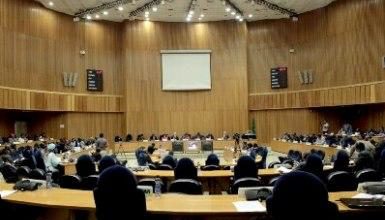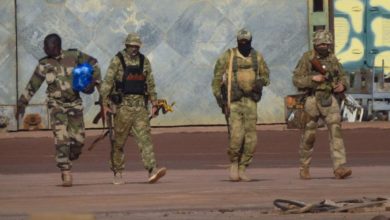Morocco, Sahara diplomatic feud

Press/slma
Spanish PM Pedro Sanchez and Moroccan King Mohammad VI met in Rabat after a year of tense relations. Spain said it backed the kingdom’s plan of limited autonomy under Moroccan sovereignty for Western Sahara.
Morocco and Spain on Thursday agreed to ease their strained relations after Madrid supported Rabat’s autonomy plan for Western Sahara, ending a year-long diplomatic crisis.
“Today is an important day for Spain and Morocco because we initiate a new phase of bilateral relations,” Spanish Prime Minister Pedro Sanchez said after meeting with Moroccan King Mohammed VI in Rabat.
A statement from the Moroccan Royal Palace said the two leaders “reiterated their willingness to
usher in a new phase, based on mutual respect, mutual trust, permanent consultation and frank and faithful cooperation.”
What had caused diplomatic tensions?
The diplomatic tensions began a year ago when Madrid allowed Brahim Ghali, leader of the Polisario Front, which seeks independence for the territory of Western Sahara, to be treated for COVID-19 in a Spanish hospital.
Morocco has accused Ghali of war crimes and views Western Sahara as an integral part of the kingdom. After Spanish colonial forces withdrew from Morocco in 1975, the country fought a bitter war with the Polisario.
After Ghali’s hospitalization, more than 10,000 migrants arrived at the Spanish enclave of Ceuta in North Africa as Moroccan border forces failed to act in what was seen as a retaliatory move against Spain.
On March 18, Madrid announced a “new stage” in relations, and said it now backed the kingdom’s plan of limited autonomy under Moroccan sovereignty for Western Sahara.
A joint Spain-Morocco statement said they would immediately resume sea travel.
The two countries also agreed to work on the demarcation of Atlantic sea borders in addition to airspace management, as well as to reinforce cooperation on migration, economy, energy, industry and culture.
Morocco announced that it would start importing gas using Spanish liquid natural gas terminals by reactivating an idled pipeline.
Sanchez hailed the “historic moment,” spurring domestic backlash against him.
A majority of Spanish lawmakers, including from the left- and right-wing opposition and Unidas Podemos, the junior government partner to Sanchez’s Socialist Party, voted in a resolution against the foreign policy change.
tg/sms (AFP, AP, Reuters)





